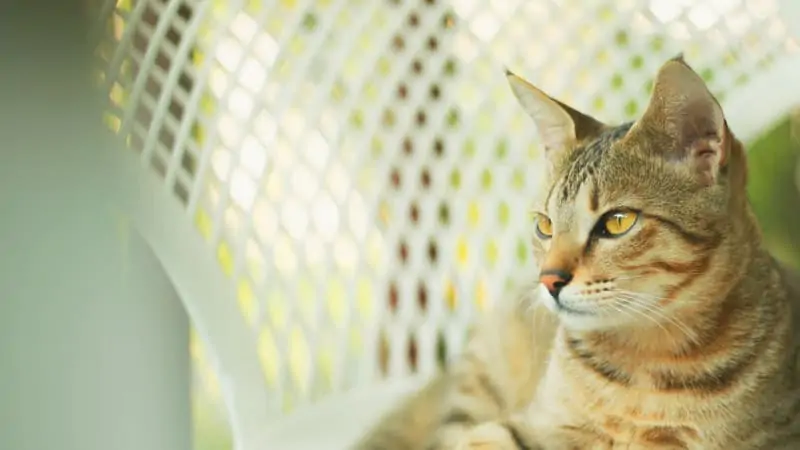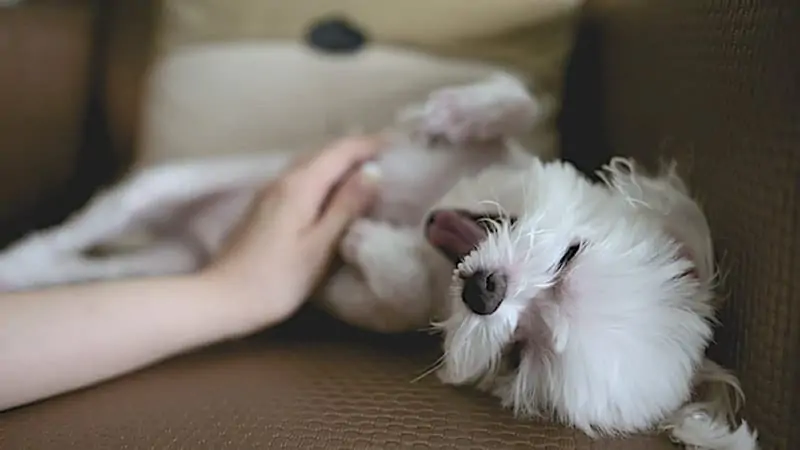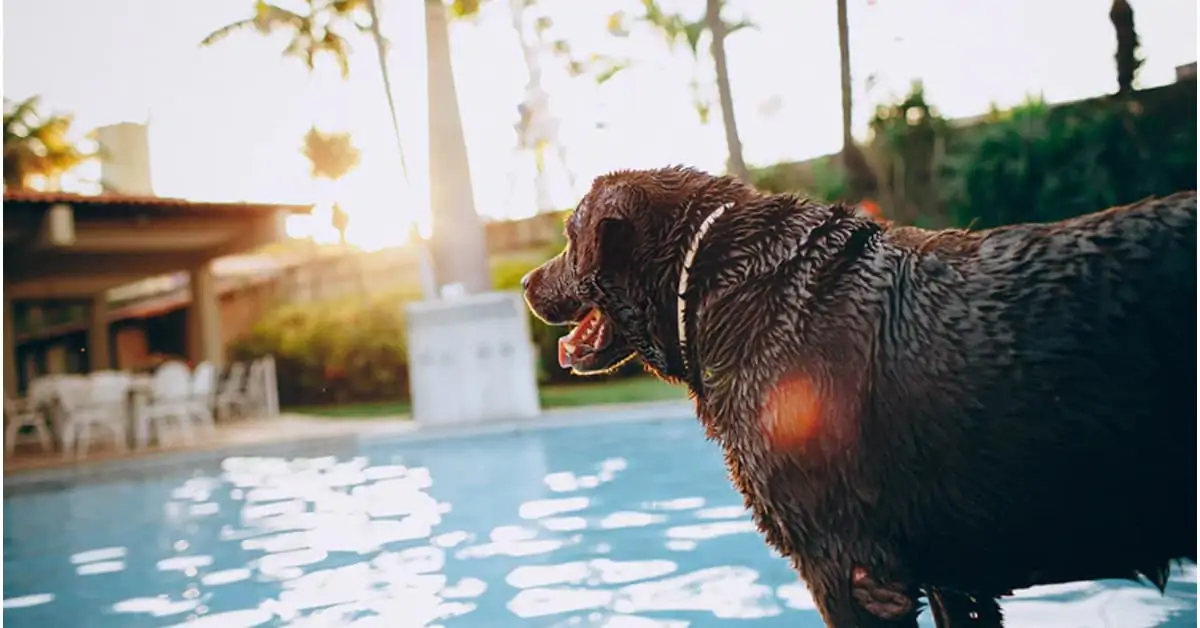Your pets are an integral part of your family and you’ll often want to take them along on your travels. In many parts of the world, hotels are becoming increasingly pet-friendly for most types of pets. However, traveling with pets can give rise to various safety concerns.
Hotels and other travel accommodations around the world are putting in plans and protocols for cleanliness and danger prevention. As a result, pet-friendly hotels are safe for pets and humans. Protocols include frequent cleaning, soundproofing, odor removal, and species separation.
Check out some of the measures pet-friendly hotels have in place to safeguard you and your pets whenever you travel.
Are Pet Hotels Safe?

Pet hotels are safe for pets and humans if the correct procedures are followed. To maintain safety, pet-friendly hotels have some basic rules they require all guests to follow. These include:
- Pets must be clean.
- Pets must be disease-free.
- Pets must be up to date with their vaccinations.
- Pets must not be aggressive.
- Pets must be always restrained.
- Pets must not be left unattended without the hotel’s knowledge.
To further enhance safety, most pet-friendly hotels adopt the following measures:
Noise
Most pets, especially cats and dogs, experience a strong feeling of fear around loud noises. Noise anxiety is very common, especially when a pet is in a strange environment away from home.
Most pet-friendly hotels are located in quiet neighborhoods. The hotels design their spaces with soundproofing and face open windows away from street traffic. Pet-friendly hotels often discourage loud celebrations where fireworks might be used.
Howling
Sometimes pets are the source of noise. For instance, dogs can start howling and other dogs in the vicinity might join in for a long night of howling. Dogs usually howl when they’re lonely, injured, to mark territory, for long-distance communication, and to attract mates.
Pet-friendly hotels use soundproofing and detergents which mask the scent of pets in heat. For example, some pet-friendly hotels often use detergents mixed with liquid chlorophyll so male dogs won’t sense the odor of a female in heat.
Hotels will also limit the number of dogs admitted at any one time. This is to prevent the pack’s instinct of communicating through howling. The same applies to some types of birds.
Restraints
Even the best trained and domesticated animals sometimes act out unpredictably. The fight or flight instinct can be triggered by anything, so pet-friendly hotels require all pets to be restrained at all times.
Pets need to be leashed, caged, or tethered. Otherwise, they might be a danger to themselves, to other pets, and to humans.
Fleas and Pests
Wherever there are animals there are bound to be some pests. Pet-friendly hotels take extra measures to protect their spaces and their residents from fleas, ticks, and other pests.
To keep all pets and humans safe, some pet-friendly hotels require your pet to undergo some in-house inspection before they are allowed into common areas. Other hotels will require you to submit a vet clearance letter before admission.
The hotels regularly spray their spaces, beddings, and floorings with disinfectants and other non-toxic pest control chemicals.
Fights
Animals can be very territorial, especially canine and cat species. Dogs will viciously attack other dogs. Cats and dogs will chase each other. Birds, monkeys, and snakes will protect their spaces. Fish and hamsters could be in danger of predators.
To avoid fights and preying, pet-friendly hotels insist on leashing and caging of all pets. The hotels will usually take steps to keep potential prey away from predatory species.
Poop, Pee, and Hairballs

Pet-friendly hotels have more rigorous cleaning protocols compared to other types of hotels. Animals can urinate, drop poop, or vomit out hairballs anywhere without warning. Even though pet owners often take responsibility and carry off poop in dog poop bags, the odor and stains might remain.
Hotel cleaners take a vigorous approach to eliminating pet waste, including the after-smells. The cleaners also have special cleaning processes to get rid of bird dust and dander. The air vents and a/c are also set to avoid harmful scents, odors, or chemicals.
What Does It Mean When a Hotel Says Pet Friendly?
When a hotel advertises as being pet-friendly, they mean they will allow pets though some restrictions may apply. Some of the most common policies and restrictions include:
- The hotel will only allow some species as pets. Most pet-friendly hotels only accept dogs while some also accept cats. Other types of pets may be allowed under special circumstances.
- Hotels will allow pets of a particular size only. Most pet-friendly hotels will only accept small-sized to medium-sized dogs. They may have a weight restriction such as “only dogs below 50 lbs.”.
- Maximum number of pets per room (usually only one or two pets per room).
- Pets are only allowed in certain sections of the hotel. Pets might not be permitted in areas such as bars, restaurants, and pools.
- Pet-friendly hotels may charge an additional fee. This might be a one-off standard charge, a daily charge per pet, or a charge per stay per pet.
- All guests are required to clean up after their pets. Most pet-friendly hotels will have dog poop bags for sale.
- Some pet-friendly hotels may have breed restrictions if they consider some breeds more difficult to control.
- Pet-friendly hotels may have additional services such as grooming, dog-walking, pet daycare, and dog training services.
Are Pets Allowed in Hotels During Covid?
Pet-friendly hotels are accepting guests with pets even as COVID-related concerns continue to plague the world. Like most other accommodation options, [pet-friendly hotels have stepped up their cleanliness and sanitation protocols to protect against the transmission of viruses.
Like other hotels, pet-friendly hotels are installing hand sanitizers in prominent and accessible locations, promoting social distancing, and increasing cleaning frequencies with the use of hospital-grade disinfectants. Pet-friendly hotels may also require all staff to always dress in personal protective equipment. Some hotels are even sanitizing room keys using ultraviolet light technology.
According to the US CDC, there is no evidence that pets can spread COVID. Pet-friendly hotels do not practice or recommend wiping or bathing pets in alcohol, disinfectants, cleaning wipes, hydrogen peroxide, or other surface cleaners. Instead, the hotels encourage staff and guests to:
- Wash hands after handling animals, their fur, or their supplies and waste.
- Clean up after pets thoroughly.
- Consult your veterinarian before travel and if you have any questions about your pet’s health or risk of your pet transmitting diseases.

